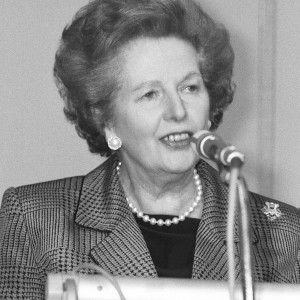On Oct. 18, 1979, British Prime Minister Margaret Thatcher stood before world leaders at the Winston Churchill Memorial Lecture to address the challenges of a drifting European economy. Thatcher argued, “Less government is good government.”
It was her hope that governments in free societies would acknowledge that their primary role was to protect individuals from aggression by others, while allowing those individuals to think and act accordingly. If a government did badly by its people, the people could change it — at least that’s the way the democratic process is supposed to work.
Now, 36 years later, the United States faces a similar problem to that addressed by Thatcher: economic freedom has fallen, incomes are growing slowly if at all, and there is little understanding of why this is the case.
The findings of the 2015 Economic Freedom of the World Report illustrate this point. The report is published annually by a worldwide network of independent institutes headed by Canada’s Fraser Institute. Economic freedom is present when individuals are permitted to choose for themselves, keep what they earn, and trade freely with others. The EFW report uses statistical methods to measure and rank the degree to which economic freedom is present in 157 countries and territories around the world.
Throughout the 1980s and 1990s, the United States was the world’s third freest economy, ranking behind only Hong Kong and Singapore. As the 2015 report shows, the United States has now fallen to 16th, behind Canada and the United Kingdom, as well as Chile, Georgia, Ireland, Qatar and Taiwan, among others.
Even more alarming, since 2000 the economic freedom rating of the United States has fallen by almost a full point on the 10-point scale of the index. The U.S. rating and ranking fell substantially in Size of Government, Legal System and Property Rights, Sound Money, Freedom to Trade Internationally, and Regulation, the five major areas of the index.
The declines in the international trade, size of government, and legal areas were particularly large. The U.S. ranking in Freedom to Trade Internationally fell to 74th, down from 22nd in 2000, largely due to more restrictive regulatory trade barriers, higher non-tariff barriers, and tighter government control over the movement of capital and people.
The U.S. ranking in the Size of Government area also plummeted to 74th, down from 34th in 2000. Larger expenditures on the War on Terror, bank and auto industry bailouts, the Medicare prescription drug program, expanded unemployment benefits, and increased entitlement spending contributed to the decline.
The U.S. ranking in the Legal System and Property Rights category also dropped from ninth in 2000 to 29th in this year’s report. While it is difficult to precisely pinpoint the reasons for this decline, expanded use of eminent domain to transfer property to powerful political interests, the violation of bondholder rights accompanying the auto industry bailout, and the ramifications of the wars on terrorism and drugs surely played a role.
The one-point rating decline may not sound like much, but detailed studies of the relationship between economic freedom and economic growth indicate that this reduction will slow the long-term growth rate of the United States by between 1 and 1.5 percentage points. Put another way, unless it is reversed, this decline in economic freedom will cut the average U.S. historical growth rate of 3 percent in half.
Worldwide, there is some good news. More than 100 countries now enjoy a higher level of economic freedom than two decades ago. Overall, the average EFW rating is now more than a point higher than in 1990. Moreover, the largest gains in economic freedom have been registered by poor, less developed countries. The economic freedom gap between the high-income industrial economies and the less developed world has been reduced by more than 50 percent since 1990.
The EFW report clearly illustrates the importance of economic freedom. Citizens in the most economically-free countries outperform non-free nations in indicators of societal well-being, live up to 17 years longer on average, experience a considerably higher amount of political and civil liberties, and earn more per capita than people living in less economically-free nations.
The answer to how we can reverse America’s descent into economic stagnation lies in our own willingness to protect our freedom to choose, to trade and to compete in the marketplace. Economic freedom rewards hard work and entrepreneurship, nourishes prosperity, and ultimately shapes the conditions in which we live. We must not permit economic freedom to become an idea of the past as doing so would relegate future Americans to a life of stagnation and political cronyism.

